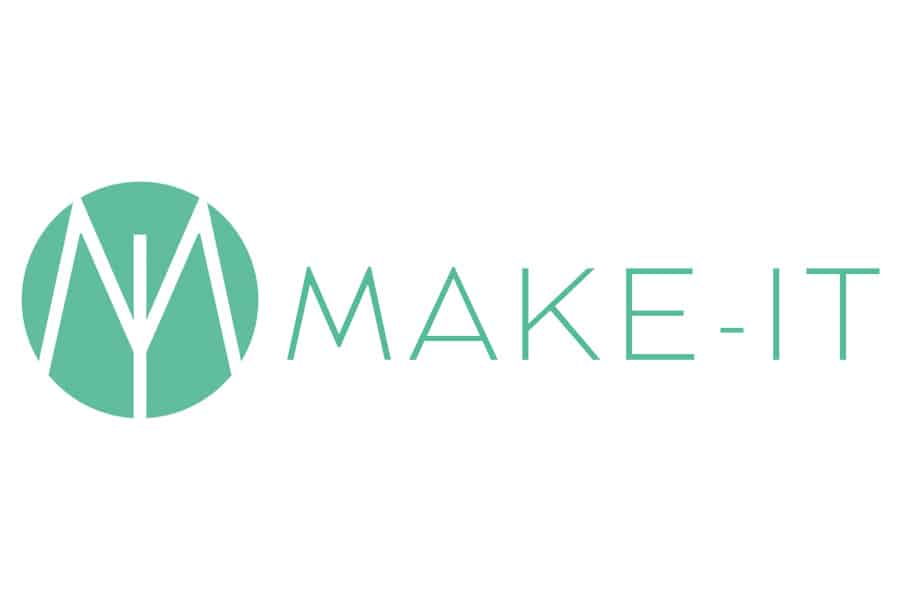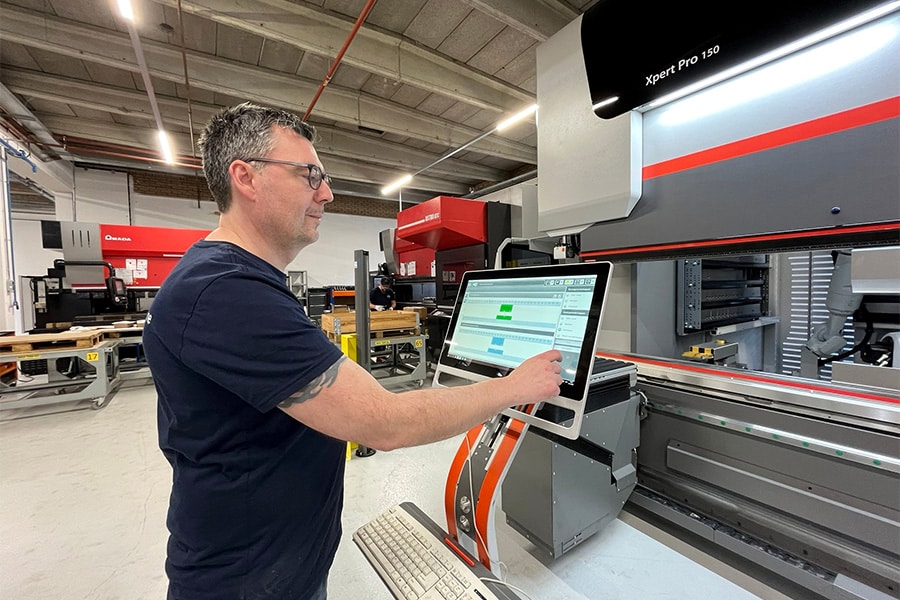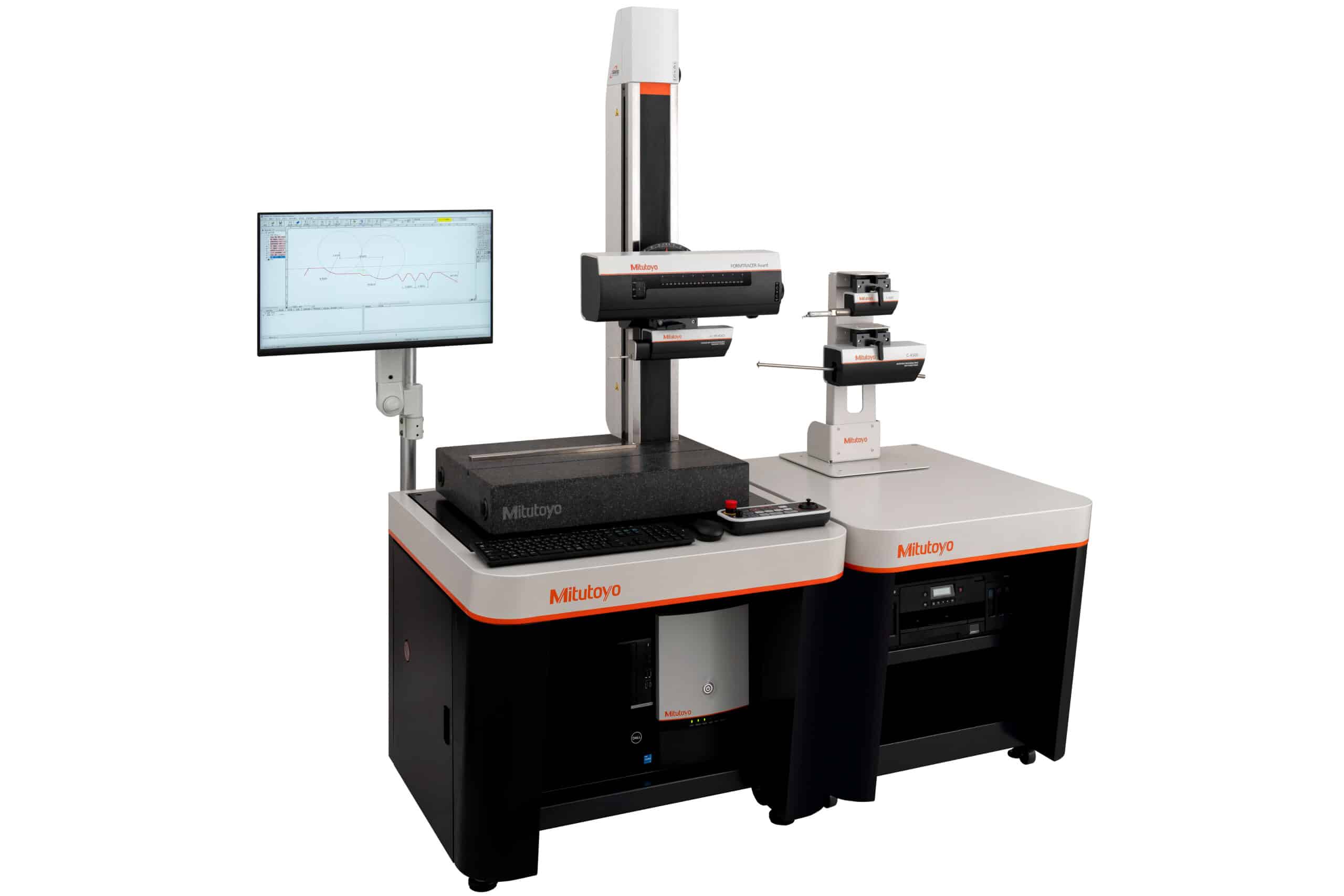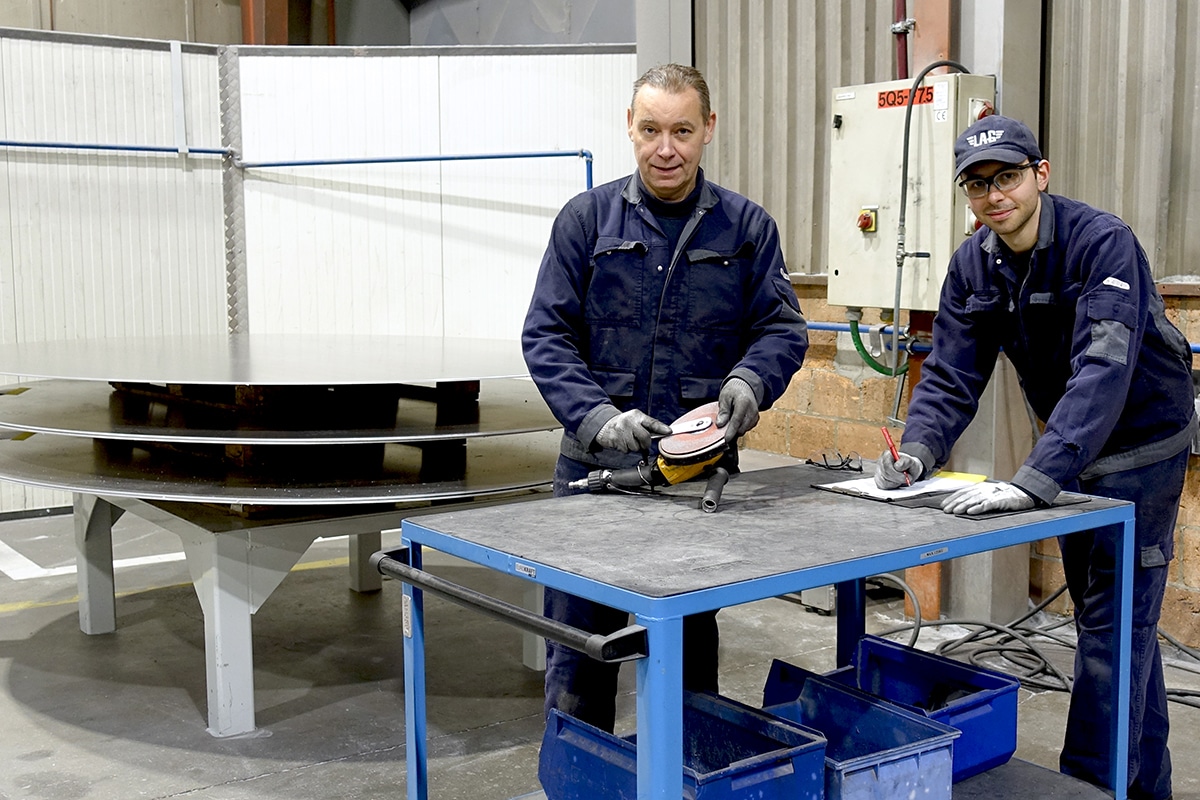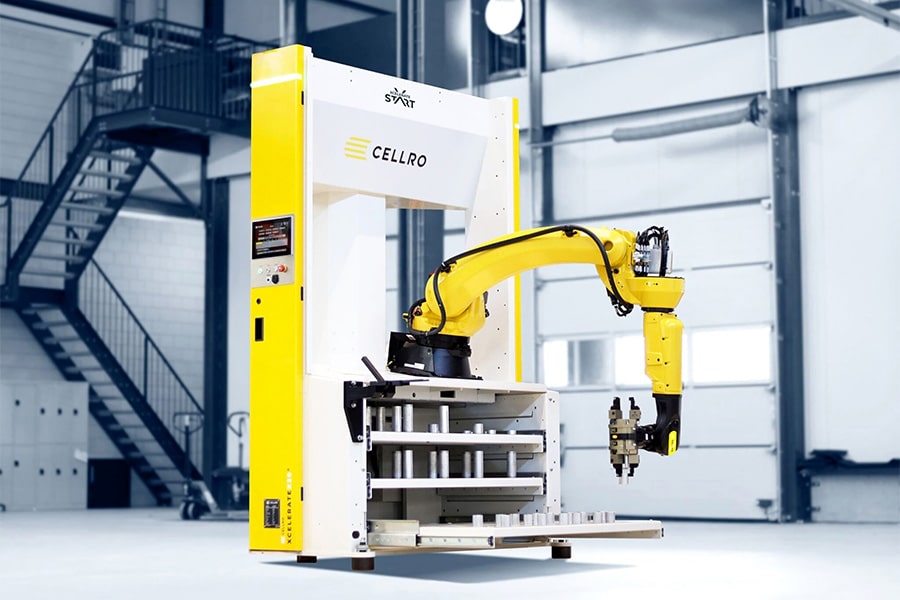
Advanced technology and chain collaboration during TechDemoweek
Smart and efficient production with high quality requires not only top-of-the-bill machines and tools, but also optimal cooperation in the chain. The six companies that together organized the seventeenth TechDemoweek in Veenendaal and Ede made that clear by being part of a joint production of a professional and personalized yo-yo. Visitors who ordered their personalized yo-yo could closely follow the complete production process from order to delivery thanks to the MKG ERP system in which the order was entered and the Smart Connected Supplier Network (SCSN) that digitally connected all companies.
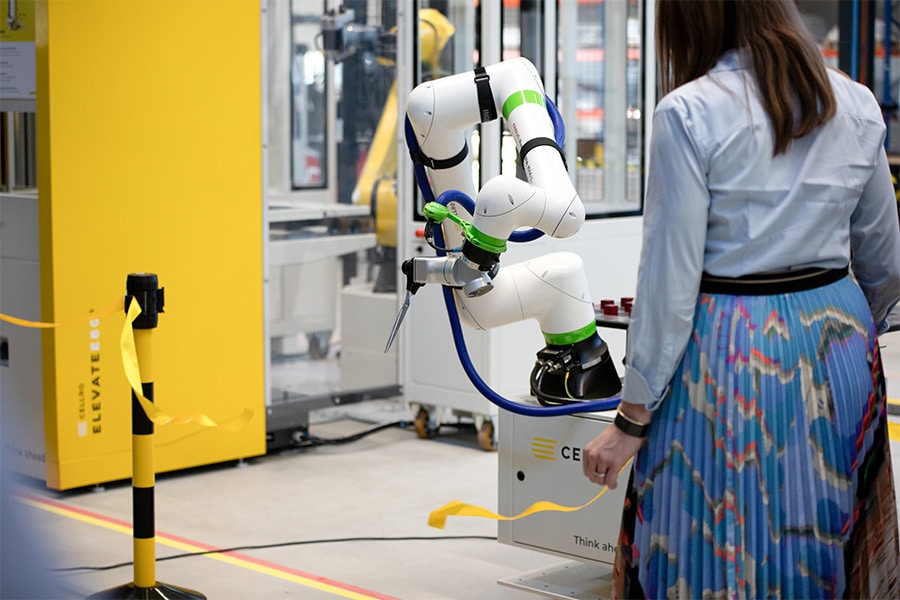
During TechDemoweek, visitors could drop in at various locations in Veenendaal at DMG Mori, Mitutoyo Benelux, Cellro and Bendertechniek. The location also featured Dormer Pramet (once relocated from Veenendaal). Just on the other side of the A12 motorway, Heidenhain could be found in the industrial area of Ede. The official opening ceremony was performed in Cellro's new production hall by a C-Mate robot from Cellro cutting a ribbon. Witnessing this were Veenendaal alderman Marco Verloop, FPT and Nevat industry manager Ires Veerman, TechDemoweek chairman Jaap Bazuin (managing director Heidenhain) Cellro ceo Arnoud de Kuijper, John Kooning (managing director DMG MORI and David and Maurits Bender (director/owners Bendertechniek).
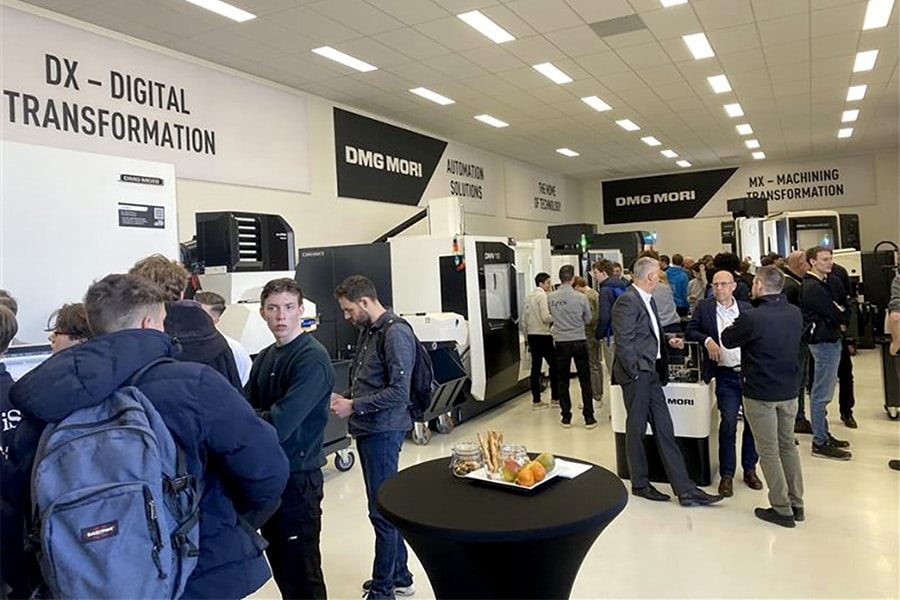
A new look......
Subtheme of TechDemoweek was "A New Look at..... Cellro ceo Arnoud de Kuijper explains what this means: "We are living in turbulent times. Skilled workers are really getting scarcer now, important industries such as the European automotive industry are getting hit hard which also reverberates through the supply chains. And then there are the geopolitical tensions and the impending trade war with the U.S. In short, what will this mean for the turnover and future opportunities of our manufacturing industry? We should not sit idly by and wait for that, but focus now on our strength as an advanced Western industry. With Manufacturing Intelligence you can automate the production process smarter. From the ERP system, orders go directly to the machines. Things like tool control, raw material control and selecting the right fixtures are (partially) automated. In addition, the workshop management is also digitally supported, making work more efficient."
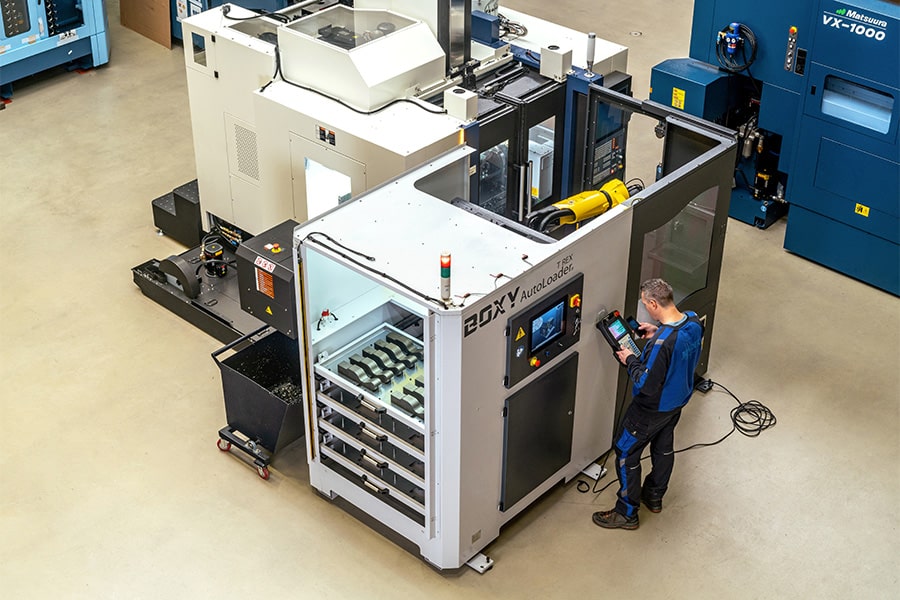
Starting smart
During TechDemoweek, Cellro launched the new Xcelerate START that allows an affordable start in CNC automation, while easily expanding this platform at a later stage. "With the Xcelerate START, we make it possible for any machining company to get a smart start in CNC automation," de Kuijper says of it. "Many companies want to automate, but are looking for a future-proof and affordable solution. With this new entry-level version of the Xcelerate, available from €77,000, they can now take that first step. From the "entry-level" version, companies can immediately benefit from the powerful Xcelerate platform. The system processes both round and square products, and the best part is: operators don't need any robot programming knowledge. Within three minutes they learn it. And if expansion is needed then you just add systems.'
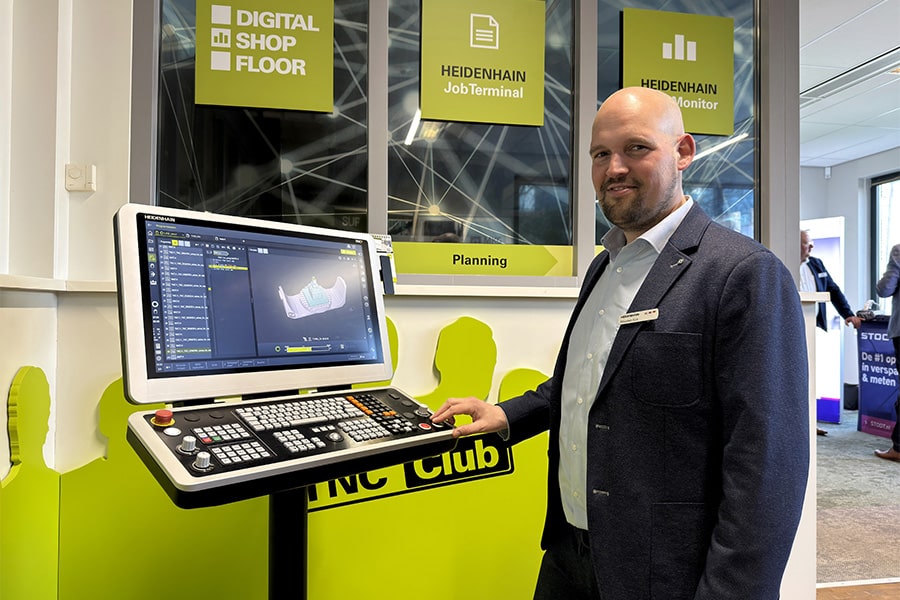
Focus on automation
Bendertechniek also focused on automated production during TechDemoweek. Meanwhile, the company has extensive experience in automating production machines by means of bar feeding systems, pallet handling, chip removal systems and loading robots, among others. In order to offer complete, customized automation solutions, Bendertechniek has expanded its delivery program by entering into an exclusive partnership for the Benelux with Boxy AutoLoader System from Turkey. This manufacturer supplies a complete range of compact, customized automatic loading and unloading systems for CNC lathes and machining centers, setting a new standard.
The Boxy Autoloader System, is distinguished by its simple and user-friendly software. Bendertechniek demonstrated several setups ranging from simple robot loading systems such as the Raptor and the T-rex to the highly versatile Y-Loader that allows pallets, products and even tools to be included in the automation for the machine.
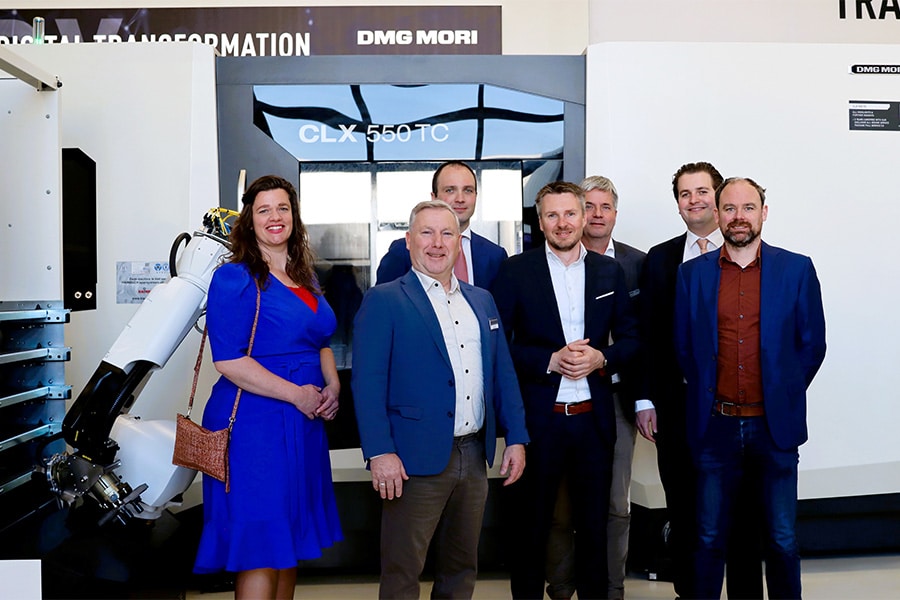
DMG Mori
John Kooning, managing director of DMG Mori Netherlands, looks back on TechDemoweek with satisfaction. 'I think we had more than four hundred customers on the floor, for whom we had a number of machines set up working in our showroom. The main focus of our novelties is the integration of operations. Previously you needed four machines to make a complicated product, now you can achieve that on one machine. The new CLX550 is a good example of this. Because equipped with a robot, this machine offers significant advantages over traditional turret lathes. This, among other things, thanks to the B-axis. In addition, this machine offers high positioning accuracies and ditto performance with an optimized workspace for workpieces up to Ø550mm x 1,600mm. A world first during TechDemoweek was the DMV110, equipped with a ten pallet change system. This is a vertical machining center with an XYZ range of 1,100 x 600 x 510 mm respectively where workpieces up to 1,700 kilograms can be machined. Also on display were a DMU 40Pro 5-axis machining center, the compact lathe CTX350 4A with two turrets and a second-generation NLX2500 turning machine that came directly from Japan. All machines were also equipped with Celos X with integrated program system.'
Multi-machines
"Integration is trump. Which you also see in the new turning machines that, thanks to the solid turret, also allow you to mill maturely," Kooning emphasizes. "Constructors are responding to this development by designing ever better and smarter integrated products. Whereas previously these had to be made from multiple parts that were later welded or bolted together, with the new multi-machines, complex products can increasingly be realized from one piece of material in one machine. Because something made in one piece is also stronger, you can often save on dimensions and/or material thickness. At TechDemoweek, we showed around many designers and fabricators who wanted to see what combined operations are possible with the new machine generations. The improved graphic interfaces on the machines also help to convince them faster because these products can also be displayed and programmed in 3D."
Heidenhain
Heidenhain also focused on developments that support man-poor/manless production. For example, on the machine tool that engraved the personalized yo-yo half was the new VT122 camera. This compares the new status of the tool with the current status during machining. If the image falls below a certain limit, a signal is sent to the operator and/or the automatic tool change system that it is time to insert a new cutter. Also new at Heidenhain was the TD110 tool breakage sensor that can minimize rejects and prevent consequential damage. Even when producing individual parts, the tool breakage sensor can be used with micro-tools without a teach-in process. Up to six seconds can be saved with each tool change compared to laser photoelectric sensors. Combined with the process monitoring of TNC7, additional times can be further reduced with the inductive sensor. The fracture sensor can be seamlessly integrated into the work process with the current operating speed. The TD110 can be retrofitted for all controls. For TNC controls, the breakage sensor can be set up via Remote Support. Also new was the TNC7 control, which is much more powerful and graphically stronger than its predecessor TNC6.
More complex products
All in all, this seventeenth edition of TechDemoweek offered a wonderful look at man-poor/manless production on the one hand and the integration of operations into one machine on the other. This allows considerably more complex products to be realized than if you had to machine them on separate machines. Certain steps can thus be skipped, allowing faster and more efficient work in addition to realizing higher complexity. With the latest machine generations and automation solutions, both digital and in the form of robots and pallet change systems, the European manufacturing industry can distinguish itself even better worldwide.
